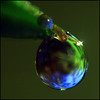
ScienceNews.com reports today on a recent sociological investigation into attitudes about global warming. Pollsters from Gallup asked groups of Republicans, Democrats, and Independents about whether they believe that ‘global warming poses a serious threat to the American way of life.’ The emerging results suggest that over the last 10 years, Democrats have increasingly said ‘yes’ (49% today as opposed to 31% ten years ago) while the share of Republicans saying ‘yes’ has grown more slowly (now 26% and previously 20%).
Science News reports:
… While virtually half of Democrats currently view global warming as posing a serious threat within their lifetimes, only one-quarter of Republicans feel similarly, report Oklahoma State University sociologist Riley E. Dunlap (who’s also a Scholar for the Environment at the Gallup Organization) and sociologist Aaron M. McCright of Lyman Briggs Collegeand Michigan State University.
The pair argue that the polling data suggest Republicans and Democrats are becoming “more ideologically polarized,” at least on the issue of global warming. They attribute the increasingly divergent views on this issue to “party sorting” — that is, people choosing a party on the basis of its general views on this issue, or people within a party increasingly assuming the views on this issue that are espoused by leaders of their party.
Dunlap and McCright find that the tight correlation between party affiliation and attitudes about climate hold even after accounting statistically for other potentially confounding demographic factors such as gender, age, race, income and education. Moreover, they observe, throughout the past decade, “Republicans and Democrats who believe they understand global warming reasonably well [have been holding] more divergent views compared with their presumably less-informed counterparts.”
The bottom line? Democrats’ views about global warming have reflected scientific conclusions on climate change, while Republicans dismiss the scientific assessments.

Comments 2
Mick — September 24, 2008
The scientific method is never concluded, and this is the core of the movements failure. You guys just can't grasp that no institution can declare something empirically true, and that furthermore, scientific process can only prove things wrong .
At no point has any scientist given firm evidence that the null hypothesis is not true. The response is simply, "the warming is unaccounted for therefore it must be man". Bull#$%#$. If I told any of my science teachers that formula I would get a big phat F.